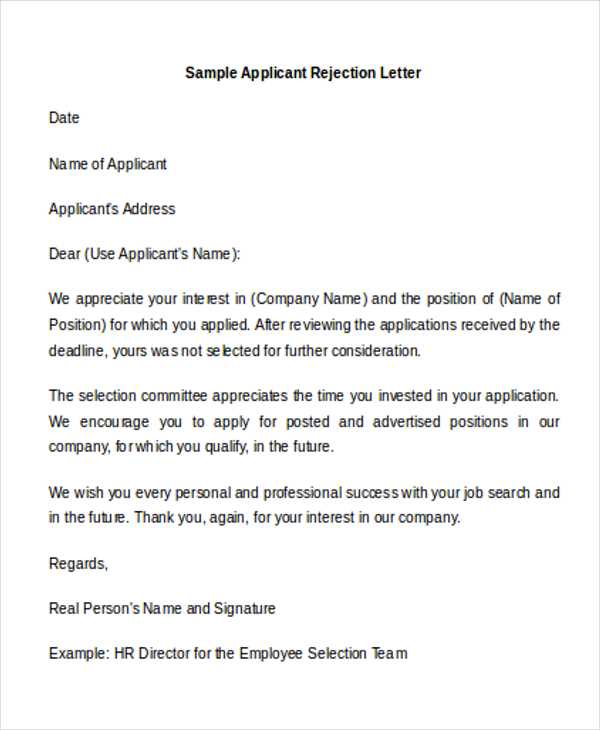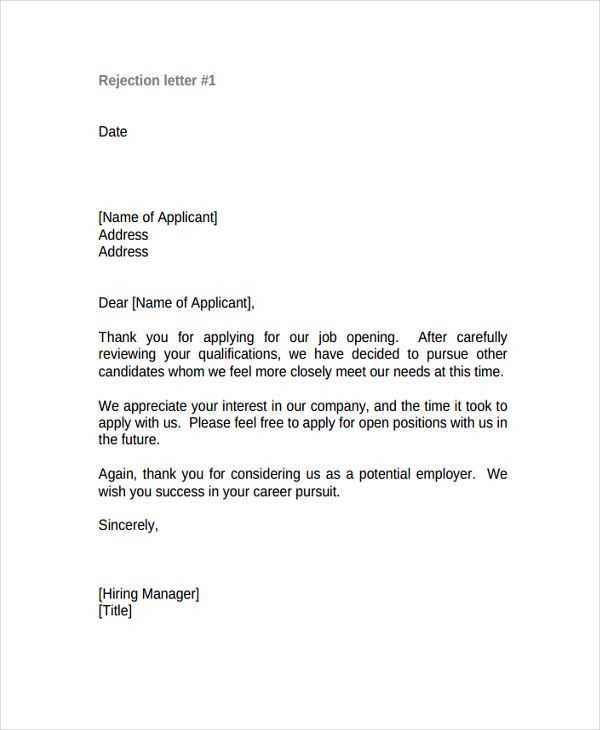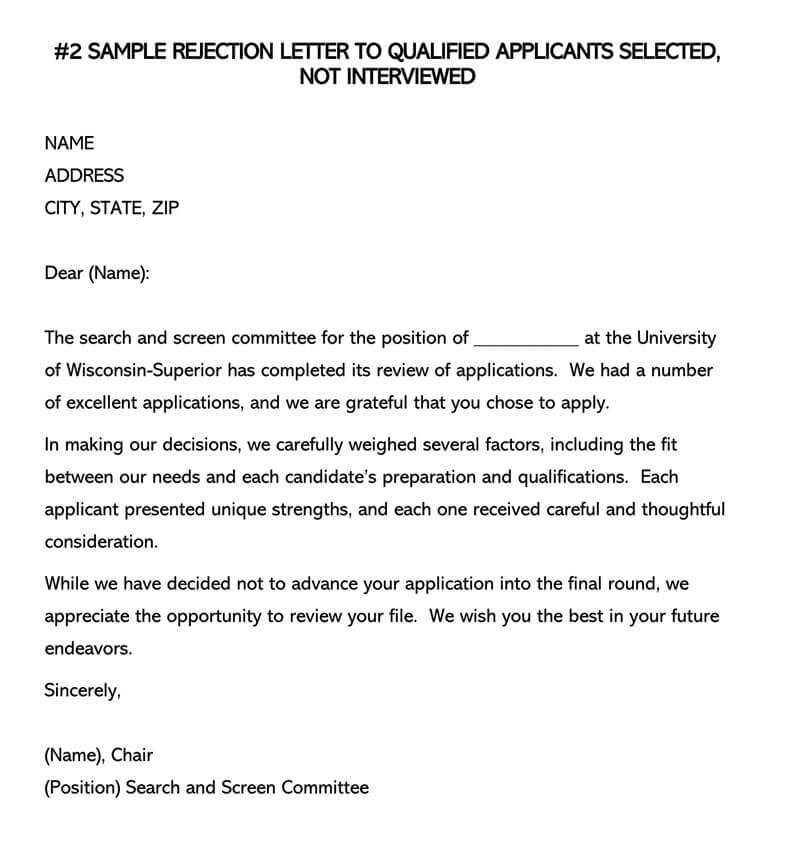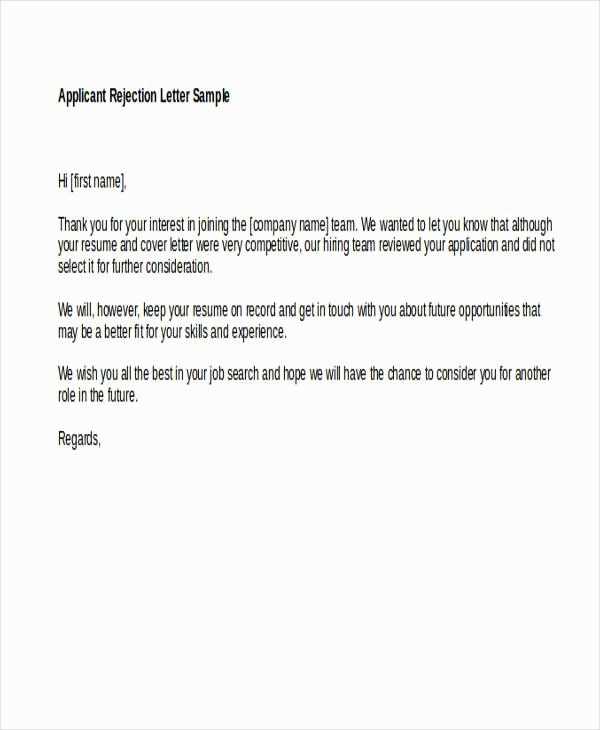Application Rejection Letter Template for Effective Communication

When it’s necessary to inform someone that they haven’t been selected for a role or opportunity, delivering the message in a respectful and clear manner is crucial. A well-constructed communication ensures the recipient understands the decision without feeling discouraged. It also helps maintain a positive relationship for potential future opportunities.
Key Elements of a Clear Response
Effective communication of a negative decision should include certain key components to ensure the message is both professional and considerate:
- Personalization: Begin by addressing the individual by name to make the message feel more personal.
- Thankfulness: Express appreciation for the time and effort they invested in applying or engaging with your organization.
- Brief Explanation: Offer a brief, honest explanation of why they were not chosen, if appropriate.
- Encouragement: Close by encouraging them to stay connected or consider future opportunities.
Tips for Crafting a Polite Message
Ensure your tone remains polite and empathetic throughout. While it’s important to convey the decision clearly, it’s equally essential to show appreciation for their interest in your organization.
Maintaining Professionalism Throughout
Keeping a professional tone is key. Avoid unnecessary details or anything that might be interpreted as overly critical. The goal is to remain respectful while delivering your message in a direct and clear way.
Common Mistakes to Avoid
Here are a few things to keep in mind when creating a response:
- Avoid overly vague statements, which may leave the candidate confused about why they were not selected.
- Don’t include too much personal feedback or irrelevant details, as they might come across as harsh or unnecessary.
- Refrain from using overly casual language that might undermine the professionalism of your response.
By following these guidelines, you ensure your communication remains respectful and constructive, fostering good will even after an unsuccessful outcome.
Understanding the Importance of Professional Communication

Delivering unfavorable news, especially in professional settings, requires a thoughtful approach. Clear and respectful messaging ensures that the recipient understands the decision while maintaining a positive relationship for future interactions. Proper communication in such cases can greatly influence how your organization is perceived and can foster goodwill even in challenging situations.
How to Maintain Professionalism in Communication

When conveying a decision that might be disappointing, it’s important to focus on maintaining a courteous and respectful tone. Avoid sounding too blunt or distant. The goal is to ensure the message is clear but also considerate, acknowledging the individual’s effort and interest.
Essential Elements of Professional Communication

A well-structured message should include several key aspects:
- Personalization: Address the recipient by name and reference their specific situation to make the communication more personal.
- Appreciation: Thank them for their time and engagement throughout the process.
- Reasoning: Briefly explain why the decision was made, focusing on the key factors that influenced it.
- Encouragement: Offer words of encouragement, such as expressing interest in staying connected for future opportunities.
Crafting a Clear and Courteous Message

Clarity and courtesy should always be balanced. While it’s essential to be direct, it’s equally important to be kind. A well-balanced response leaves a positive impression even when the outcome isn’t favorable. This can be particularly important in maintaining your organization’s reputation.
Avoiding Common Pitfalls
In any professional communication, it’s easy to fall into certain traps that may come across as impolite or unprofessional. Common errors include:
- Being too vague or ambiguous about the reason for the decision.
- Offering excessive or unnecessary detail that may seem critical.
- Using overly informal or casual language that might undermine the tone of respect.
Effective Approaches to Offering Feedback

Providing constructive feedback is an important part of communication. Offering brief, actionable suggestions or simply thanking the individual for their time can leave them with a positive impression, ensuring they feel valued despite the unfavorable decision.